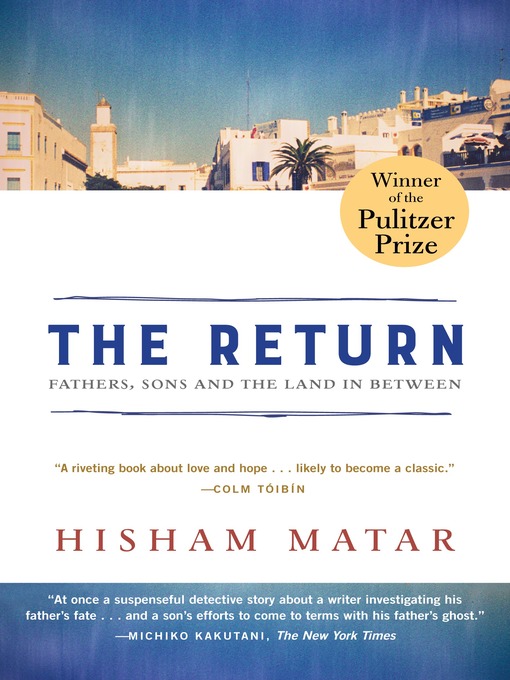
The Return (Pulitzer Prize Winner)
Fathers, Sons and the Land in Between
کتاب های مرتبط
- اطلاعات
- نقد و بررسی
- دیدگاه کاربران
نقد و بررسی

Starred review from May 1, 2016
Novelist Matar (Anatomy of a Disappearance, 2011, etc.) returns to his native Libya in 2012 following a three-decade exile.At the center of this moving and vividly documented memoir is the author's quest to find answers to his father's disappearance in 1990. Jaballa Matar had formerly worked for the Libyan delegation to the United States yet later became an influential political dissident who, in reacting against Muammar Gaddafi's revolutionary regime, was forced to flee with his family from their home in Tripoli to Cairo. A decade later, while the author was a student in London, his father was kidnapped in the streets of Cairo by forces in the Libyan government. Though his eventual whereabouts would remain uncertain, he was likely held prisoner in the notorious Abu Salim prison in Tripoli, where he may have perished in the 1996 massacre of over 1,200 prisoners. Matar provides an intimate and absorbing account of the complex political events that would eventually lead to Gaddafi's downfall. As he shifts his focus between past and present events, allowing details of his father's disappearance to slowly and subtly emerge, he reveals a suspense novelist's seasoned instincts. In his ruminations on returning to a long-forgotten family and country, and the consequences of time passing, he applies a poet's sensibility. "Somebody would be telling an anecdote and midway through I would realize I had heard it before," he writes. "It seemed as if everyone else's development had been linear, allowed to progress naturally in the known environment, and therefore each of them seemed to have remained linked, even if begrudgingly or in disagreement, to the original setting-off point. At times I was experiencing a kind of distance-sickness, a state in which not only the ground was unsteady but also time and space." A beautifully written, harrowing story of a son's search for his father and how the impact of inexplicable loss can be unrelenting while the strength of family and cultural ties can ultimately sustain.
COPYRIGHT(2016) Kirkus Reviews, ALL RIGHTS RESERVED.

June 1, 2016
Matar envies mourners at funerals. Unlike him, they have the luxury of knowing that their loved ones are dead. The uncertainty about what became of his father after he was incarcerated in a prison in Tripoli has haunted Matar's years of living away from his homeland of Libya. After several decades, novelist Matar returns to the country in this elegiac memoir. His father was a high-ranking military officer when Muammar al-Qaddafi came to power, and was imprisoned before being exiled. Those Matar's father associated with in his efforts against the Qaddafi regimemany of them relativesmet similar fates. Matar recounts their stories, the precious few details he was able to collect about his father, and his own anguish in the twilight of uncertainty following his father's presumed death. It is a testament to the power of his story that his own search campaign, involving human-rights organizations and both the Libyan and British governments, takes second place to the bitter poignance of his journey home. With muscular elegance, Matar demonstrates that hope can be a form of agony.(Reprinted with permission of Booklist, copyright 2016, American Library Association.)

February 1, 2016
Matar's fraught coming-of-age fiction debut, In the Country of Men, was a Man Booker Prize and National Book Critics Circle Award finalist and won six international awards; his follow-up, Anatomy of a Disappearance, was best-booked by the Guardian and the Chicago Tribune. Here, he recounts his family history as vital backstory to those works. More than three decades ago, when Matar was 12 years old, his family fled Libya for Egypt. Eight years later, his diplomat-turned-dissident father was snatched from a Cairo street by the Libyan government and presumably held in its most horrific prison. As the author relates, he returned to Libya after Qaddafi's 2012 overthrow, hoping against hope to find his father still alive. To be excerpted in The New Yorker.
Copyright 2016 Library Journal, LLC Used with permission.

























دیدگاه کاربران